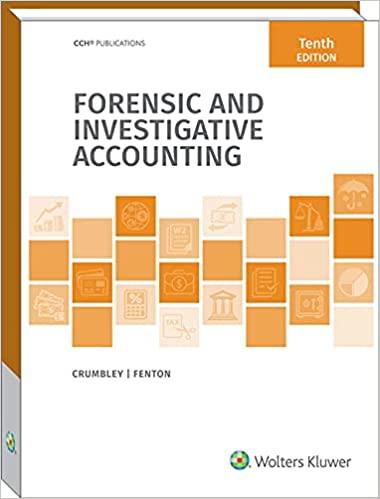Question
Oakly Variance Case ACBU 2223 Fall 2019 Instructions for Students Students can work by themselves or in teams of up to four persons, all from
\Oakly Variance Case
ACBU 2223
Fall 2019
Instructions for Students
Students can work by themselves or in teams of up to four persons, all from the same class. Students should not discuss the case with anyone except their teammates (if any). Students should not discuss the case with anyone except their teammates. The solution to all questions must be typed and submitted at the beginning of class on the Due date. Calculations should be rounded off to two decimal points if necessary.
Oakly Variance Case
Oakly Inc. manufactures a single product, XR2. Oakly uses budgets and standards in its planning and control functions. Oakly makes use of its standards in order to derive their budgeted cost per unit. For example, Exhibit A provides information on the budgeted variable costs per unit. When determining direct material costs for the planning (master) budget income statement, the $11.48 budgeted material cost per unit of XR2 would be used in the calculation.
Exhibit A
Budgeted (Standard) Variable Costs Per Unit of XR2
Raw material: 4.1 pounds at $2.80 per pound
$11.48
Direct labor: 1.2 direct labor hours at $24.00 per hour
28.80
Variable overhead: 1.2 direct labor hours at $10.80 per hour
12.96
Total variable budgeted (standard) cost per XR2
$53.24
__________________________________________________________________
The standards for fixed manufacturing overhead costs are: 1.2 direct labor hours at $14.00 per hour. The standard fixed manufacturing overhead rate per hour is calculated based on a denominator level of activity of 45,000 direct labor hours.
The planning budget income statement is based on the expectation of selling 38,000 units of XR2. The budgeted sales price is $76.00 per unit, and total budgeted fixed selling and administrative costs are $186,500. There are no variable selling and administrative costs in this firm.
The company actually produced and sold 36,000 units this year. The company never has a beginning or ending raw materials inventory, because it uses all raw materials purchased. Also, the company never has a beginning or ending finished goods inventory. Everything produced in the year is sold in that same year.
The actual income statement for the year is provided in Exhibit B.
Exhibit B
_______________________________________________________________
Oakly Inc.
Actual Income Statement
Sales:
36,000 units at $78.00
$2,808,000
Less Variable Costs:
Direct materials
436,500
Direct labor
1,040,250
Variable manufacturing overhead
__482,000
Contribution margin
849,250
Less Fixed Costs:
Fixed manufacturing overhead costs
625,400
Fixed selling and administrative costs
175,000
Net operating income
$ 48,850
______________________________________________________________
Actual production data and actual costs for the year are given in Exhibit C.
Exhibit C
_______________________________________________________________
Direct materials purchased and used:
150,000 pounds at $2.91 per pound
Direct labor:
43,800 direct labor hours at $23.75/hr.
Variable overhead costs:
$482,000
Fixed overhead costs:
$625,400
Production
36,000 units
________________________________________________________________
Required: The solution to this case must be typed.
1. Create a detailed income statement variance analysis using the contribution approach income statement (i.e., variable costing basis) for the year (i.e., compare the planning budget income statement with the flexible budget income statement and compare the flexible budget income statement with the actual income statement). Show all the activity, revenue, and spending variances appearing in the income statement analysis. A template for answering this question is given below. All variances should be marked with either an "F" for favorable or "U" for unfavorable
2. Create a very detailed manufacturing cost variance analysis (e.g., calculate the material price variance and quantity variance; the labor rate variance and efficiency variance; the variable overhead rate variance and efficiency variance; and the fixed manufacturing overhead budget variance and volume variance). All variances should be marked with either an "F" for favorable or "U" for unfavorable. Show your calculations.
Step by Step Solution
There are 3 Steps involved in it
Step: 1

Get Instant Access to Expert-Tailored Solutions
See step-by-step solutions with expert insights and AI powered tools for academic success
Step: 2

Step: 3

Ace Your Homework with AI
Get the answers you need in no time with our AI-driven, step-by-step assistance
Get Started


